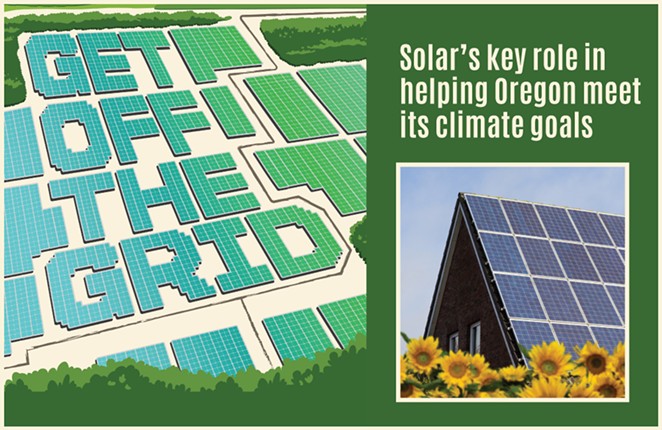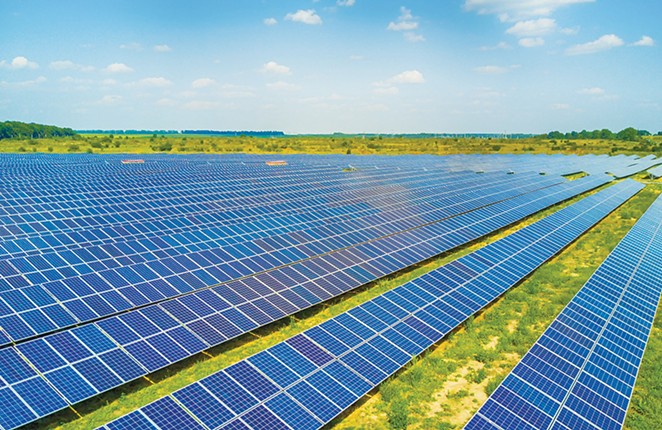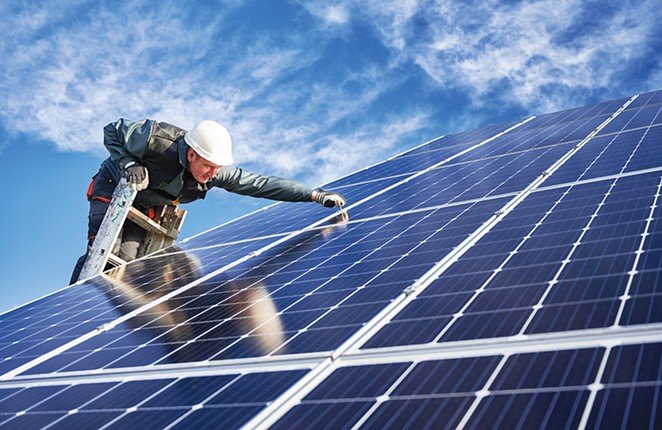The state of Oregon hopes to reach a goal of generating 100% renewable energy by 2040. One way it intends to get there is through the increasingly popular energy alternative, solar energy. As the state, and the U.S. attempt to decrease the use of fossil fuels, the benefits and support that come with installing a solar system are more attractive than ever.
In 2021, most electricity in Oregon came from hydropower, at roughly 39%. That resource was followed by natural gas and coal. At the time, solar accounted for 4.7% of electricity generation. While that number may seem low, experts suggest that the increasing prevalence and support for solar energy will propel Oregon into a cleaner future.
Goals
When it comes to energy goals, Oregon's are not specifically related to solar energy. They are focused on decarbonizing the entire electric grid, and solar is a big factor.
"It's about reaching certain milestones of eliminating fossil fuels for Oregon's electric grid. Solar will play a key role in helping Oregon meet those climate goals," said Rob Del Mar, a senior policy analyst at the Oregon Department of Energy.
For the last several years, solar has been the fastest growing renewable energy resource across the country. With coal plants being shut down and more solar being brought online, ODOE anticipates that solar will be crucial in Oregon's energy future. In order to help Oregon get there, the state has created incentive programs to promote the use of solar.
Oregon has been supporting solar projects for decades, according to Del Mar, including increased incentive for low- and moderate-income projects. In the early days of solar in Oregon, it was a lot more expensive than it is now. "Solar was a lot more expensive than it is now, and the market was transformed by these [programs]," said Del Mar. "Now, the federal and state policy focus is to let these incentive programs reach a little deeper into our communities."
Incentives and Benefits
Residents looking to get help in installing a solar system can choose from a number of different incentive programs. "We had a very active year for solar upgrades in 2023. Since we've been here, 2002, we've helped more than 25,000 folks go solar, so there is quite a lot of activity in the market," said Julianne Thacher with the nonprofit Energy Trust.
While the idea of installing solar panels can seem daunting, organizations like Energy Trust can help make the process smoother for people wanting to make the switch, offering incentives and guiding individuals through the process.
The organization offers cash incentives for solar systems going on homes, with increased incentives for income-qualified homes.
ODOE's Oregon Solar and Storage Rebate Program issues rebates to approved contractors who pass the savings on to customers. This program is intended for residential customers and organizations that serve low-income residents.
ODOE has other programs, including a community renewable energy grant program, providing grants for planning and developing community energy projects.
The U.S. Environmental Protection Agency has a Solar for All grant program that is focused on providing benefits from solar energy to low-income households and disadvantaged communities. This program awards grants to expand the number of residential solar investments.
Individuals can also receive federal tax credits under the Inflation Reduction Act. "The idea with solar is that all of these incentives kind of stack up to help support that upfront project cost," said Del Mar.
For individuals who don't have direct or easy access to solar – whether they have a shaded roof, are a renter or live in an apartment – community solar may be the answer. People can enter the state's community solar program and contribute to renewable energy efforts while receiving benefits without the upfront costs of installing a solar system.
The program allows individuals to subscribe to a local community solar project and get credits on their monthly bill, offsetting electricity use and saving money on electricity costs.
"It's a great way for people to participate who otherwise couldn't," said Thacher.
People who have solar systems installed can also receive credits from power companies with a net metering system. The systems allow customers to "store" excess electricity on the grid, reducing or offsetting the electricity they would otherwise have to purchase.
With Pacific Power's system, a household will always receive a monthly electric bill, because there is a basic charge each month. The monthly bills will cover the cost of energy a household consumes from the power grid, if a solar system does not cover usage. Pacific Power's net metering rules, credits and rates are all subject to rate changes.
Reliability
Individuals can also receive incentives on batteries that pair with solar systems, a helpful tool that helps the effectiveness of the renewable energy source. According to Del Mar, they are seeing more and more batteries installed on residential solar systems. Battery storage enables a system to deliver energy it generates during the day, anytime over a 24-hour period.
For residential systems, it can save the electricity that a home generates and provide emergency backup power to the home if the grid goes down. "That's really important in areas that experience frequent outages," said Thacher.
According to Del Mar, solar is pretty reliable in Oregon. This is because the state doesn't have enough solar yet to experience technical integration issues, an issue that some areas with a lot of solar, like California, can experience due to the variability of the energy source. Battery storage is one of the answers to that integration challenge, said Del Mar.
"The combination of solar and battery storage is just really working wonders on energy resilience in Oregon. I think that's another trend that we'll continue to see for the coming years, solar and battery storage used for backup power in the event of wildfires or any other natural hazard on the grid," said Del Mar.

























